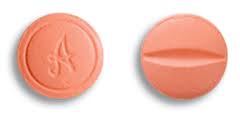Disorders of the gastrointestinal tract are very prevalent ailments these days. High levels of stress and activity cause these to spring up. Ulcers, hyperacidity, and reflux disease are two of the most common ones that you may encounter on a regular basis already. One medical treatment used to counter these gastric conditions is the use of Famotidine tablets. Before you even think of taking Famotidine tablets, you should discuss your symptoms very well with your doctor first. Your suspected heartburn may be very similar to early signs of myocardial infarction. Tell your pharmacist or doctor if you have liver disease, kidney disease, COPD (chronic obstructive pulmonary disease), and stomach problems.
Famotidine tablets are also known as histamine-II blockers. Here are some valuable facts about Famotidine tablets that you may be interested to know about:
1. Indications
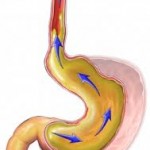 Famotidine tablets are used to treat duodenal ulcer (active), hypersecretions, GERD (gastroesophageal reflux disease), and gastric ulcer. In treating duodenal ulcers, it usually takes four weeks for an affected adult to heal. Famotidine tablets are also used for maintenance in treating duodenal ulcer sufferers but with a reduced dosage. This is usually done after the ulcer heals. Benign gastric ulcer (active) can be treated on short term basis using Famotidine. It usually takes six weeks for an adult to heal. GERD and esophagitis (caused by GERD) are gastrointestinal disorders that Famotidine tablets treats, short term. Hypersecretory conditions such as multiple endocrine adenomas and Zolliger-Ellison Syndrome could also be treated by Famotidine.
Famotidine tablets are used to treat duodenal ulcer (active), hypersecretions, GERD (gastroesophageal reflux disease), and gastric ulcer. In treating duodenal ulcers, it usually takes four weeks for an affected adult to heal. Famotidine tablets are also used for maintenance in treating duodenal ulcer sufferers but with a reduced dosage. This is usually done after the ulcer heals. Benign gastric ulcer (active) can be treated on short term basis using Famotidine. It usually takes six weeks for an adult to heal. GERD and esophagitis (caused by GERD) are gastrointestinal disorders that Famotidine tablets treats, short term. Hypersecretory conditions such as multiple endocrine adenomas and Zolliger-Ellison Syndrome could also be treated by Famotidine.
2. Contraindications and precautions
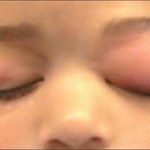 You should not take Famotidine tablets if you have hypersensitivity to the any of the medication’s components. If you are allergic to Famotidine, you may experience conjuctivela injection, urticaria, facial or orbital edema, anaphylaxis, and angioedema. Patients who have renal insufficiency (moderate to severe) should take Famotidine tablets with longer intervals.
You should not take Famotidine tablets if you have hypersensitivity to the any of the medication’s components. If you are allergic to Famotidine, you may experience conjuctivela injection, urticaria, facial or orbital edema, anaphylaxis, and angioedema. Patients who have renal insufficiency (moderate to severe) should take Famotidine tablets with longer intervals.
3. Side effects
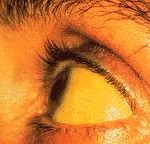 Like all other medications, Famotidine tablets have adverse effects. Generally, fever, fatigue, dizziness, headache, diarrhea, asthenia, and constipation are experienced while taking Famotidine. In the cardiovascular system, palpitation, AV blockage, and arrhythmias may be experienced. You may also have dry mouth, vomiting episodes, cholestatic jaundice, hepatitis, anorexia, abdominal discomfort, nausea, and liver enzyme abnormalities. Your nervous system may also be affected wherein you will have psychic disturbance, grand mal seizure, hallucinations, depression, anxiety, agitation, confusion, lowered libido, somnolence, convulsions, and insomnia.  Blood disorders like thrombocytopenia, leucopenia, pancytopenia, and agranulocytosis could also be experienced as side effects. Musculoskeletal side effects include arthralgia, cramps, and pain. You could also have interstitial pneumonia, bronchospasm, acne, alopecia, dry skin, pruritus, flushing, epidermal necrolysis, Steven Johnson Syndrome, tinnitus, disorders in taste, and gynecomastia may all be experienced as well. Pediatric patients who are less than a year old, experience agitation, irritability, and vomiting as adverse effects.
Like all other medications, Famotidine tablets have adverse effects. Generally, fever, fatigue, dizziness, headache, diarrhea, asthenia, and constipation are experienced while taking Famotidine. In the cardiovascular system, palpitation, AV blockage, and arrhythmias may be experienced. You may also have dry mouth, vomiting episodes, cholestatic jaundice, hepatitis, anorexia, abdominal discomfort, nausea, and liver enzyme abnormalities. Your nervous system may also be affected wherein you will have psychic disturbance, grand mal seizure, hallucinations, depression, anxiety, agitation, confusion, lowered libido, somnolence, convulsions, and insomnia.  Blood disorders like thrombocytopenia, leucopenia, pancytopenia, and agranulocytosis could also be experienced as side effects. Musculoskeletal side effects include arthralgia, cramps, and pain. You could also have interstitial pneumonia, bronchospasm, acne, alopecia, dry skin, pruritus, flushing, epidermal necrolysis, Steven Johnson Syndrome, tinnitus, disorders in taste, and gynecomastia may all be experienced as well. Pediatric patients who are less than a year old, experience agitation, irritability, and vomiting as adverse effects.
4. Interactions
 You should avoid drinking alcohol while taking Famotidine tablets so as to avoid any damage to your GI tract. Do not take Axid (nizatidine), Zantac (ranitidine), and Tagamet (cimetidine) unless your physician tells you to. It may also decrease your thinking or reactions to certain situations so as much as possible, avoid doing activities that require your alertness like driving. Famotidine tablets also interact with ketoconazole (Nizoral), NSAIDs (aspirin), itraconazole (Sporanox), and atazanavir (Reyataz).
You should avoid drinking alcohol while taking Famotidine tablets so as to avoid any damage to your GI tract. Do not take Axid (nizatidine), Zantac (ranitidine), and Tagamet (cimetidine) unless your physician tells you to. It may also decrease your thinking or reactions to certain situations so as much as possible, avoid doing activities that require your alertness like driving. Famotidine tablets also interact with ketoconazole (Nizoral), NSAIDs (aspirin), itraconazole (Sporanox), and atazanavir (Reyataz).
5. Dosage
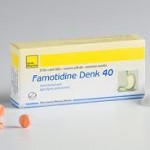 In treating duodenal cancer, 40 mg of Famotidine tablets before bedtime or 20 mg twice everyday are given to the patient. For maintenance therapy, 20-mg Famotidine tablets before bedtime is given. For the acute therapy of benign gastric ulcer, 40-mg Famotidine tablets are given as adult dosage everyday before bedtime. When GERD is treated, six weeks will be given for the patient to take in 20 mg of Famotidine tablets twice everyday. For sufferers of esophagitis (secondary to GERD), 20 mg or 40 mg of Famotidine are given twice a day for twelve weeks.
In treating duodenal cancer, 40 mg of Famotidine tablets before bedtime or 20 mg twice everyday are given to the patient. For maintenance therapy, 20-mg Famotidine tablets before bedtime is given. For the acute therapy of benign gastric ulcer, 40-mg Famotidine tablets are given as adult dosage everyday before bedtime. When GERD is treated, six weeks will be given for the patient to take in 20 mg of Famotidine tablets twice everyday. For sufferers of esophagitis (secondary to GERD), 20 mg or 40 mg of Famotidine are given twice a day for twelve weeks.
6. Other data
 There are really no founded drug interactions with Famotidine tablets. These tablets are scientifically proven to have no carcinogenic, mutagenic, or infertility properties. Famotidine tablets are under pregnancy category B. This means that it has no toxic effects on the fetus and can be used in pregnancy but only if it is needed. Famotidine was also proven to seep through breastmilk. If the breastfeeding mother takes Famotidine tablets, then it will be highly probable that the child will take in the medication and may suffer from the side effects as well.
There are really no founded drug interactions with Famotidine tablets. These tablets are scientifically proven to have no carcinogenic, mutagenic, or infertility properties. Famotidine tablets are under pregnancy category B. This means that it has no toxic effects on the fetus and can be used in pregnancy but only if it is needed. Famotidine was also proven to seep through breastmilk. If the breastfeeding mother takes Famotidine tablets, then it will be highly probable that the child will take in the medication and may suffer from the side effects as well.
If you are having signs and symptoms of any of the earlier given GI disorders, you should immediately consult with your doctor. This is to make sure that your intake of Famotidine tablets is monitored and is suited for your present state of health.
